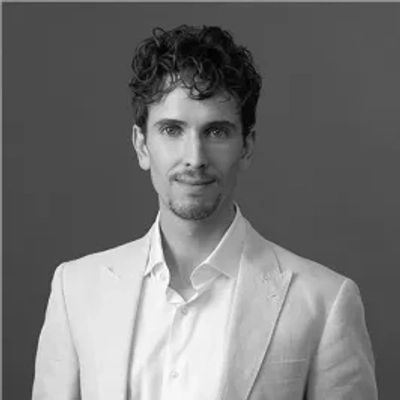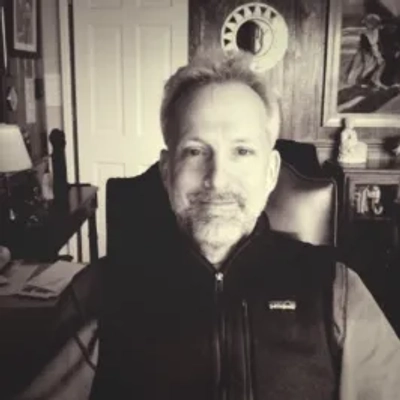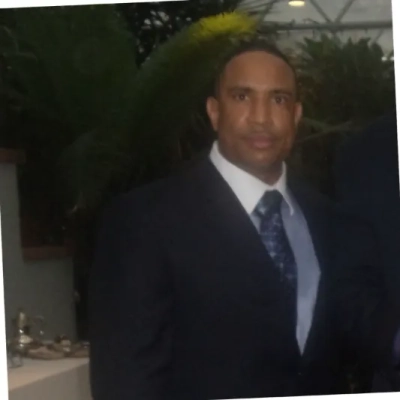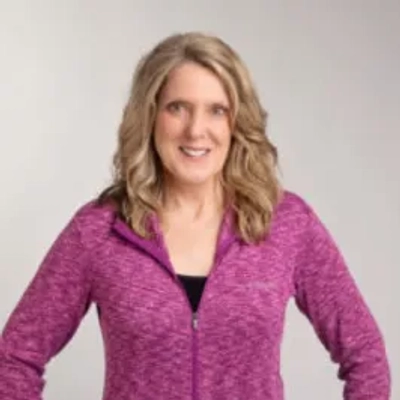How Discovering Someone’s Passion Can Reveal Hidden Character Traits
Discover the surprising ways passions can unveil hidden character traits. This article presents insights from experts, exploring how hobbies and interests reveal unexpected qualities. From birdwatching to urban planning, learn how diverse passions can showcase leadership, resilience, and inner strength.
- Passion Reveals Hidden Healing Potential
- Organizational Skills Uncover Leadership Qualities
- Artistic Dedication Accelerates Trauma Recovery
- Enthusiasm Unveils Core Self in Recovery
- Car Restoration Passion Improves Coaching Skills
- Birdwatching Enthusiasm Reveals Quiet Strength
- Urban Planning Passion Uncovers Community Focus
- Real Estate Enthusiasm Showcases Empathy
- Bonsai Obsession Reveals Life Philosophy
- Bracelet-Making Unveils Inner Healing Strength
- Photography Passion Transforms Medical Treatment
- Pottery Hobby Enhances Fitness Journey
- Gaming Obsession Optimizes Escape Room Design
- Embroidery Reveals Resilience in Grief
- Cake Decorating Passion Enhances Work Ethic
- Camera Restoration Reveals Precise Personality
- Chess Expertise Transforms Fitness Approach
- Design Passion Unveils Deep Thinking
- Salsa Dancing Reveals Hidden Boldness
Passion Reveals Hidden Healing Potential
I’m someone who has worked with thousands of back pain patients over a seventeen-year period, and this one woman completely changed my perspective on what motivates people to heal. When Maria limped into my Austin clinic last spring, six months after the accident, she had trouble touching her toes without wincing and grimacing in pain. The early visits were about routine. She would do her exercises, take polite nods, and then leave. Nothing special.
Then one Thursday morning, I was walking into my waiting area when I noticed her hunched over a beat-up spiral notebook, drawing what I think are the most incredible spine illustrations I’ve ever seen outside of a medical textbook. She’d been staying up at night, reading anatomy books borrowed from the library and making diagrams of each and every muscle we discussed as we treated. Her husband said she had turned their dining room into a temporary study area with borrowed medical books all over the room. While other patients I cared for moaned about being given stretching exercises, Maria was teaching herself things that had tripped up physical therapy students. Her recovery time went from the average of twelve weeks to four. I found something I had not seen in all the years I had treated patients. In my notebook, I wrote: Real healing occurs when someone becomes obsessed with learning about their own body.
 Dr. Chad Walding
Dr. Chad Walding
Co-Founder and Chief Culture Officer, NativePath
Organizational Skills Uncover Leadership Qualities
A client came to me completely withdrawn after losing his job, barely speaking during our first sessions. During one appointment, I noticed him carefully organizing my bookshelf while waiting – not just tidying, but creating an entire cataloging system with remarkable attention to detail.
When I asked about it, he lit up explaining his passion for data organization and how he’d been secretly building databases for local nonprofits in his spare time. His enthusiasm revealed an incredible capacity for systematic thinking and helping others – qualities completely hidden beneath his depression and unemployment anxiety.
That organizational passion showed me he had natural leadership skills and a drive to create order from chaos, directly contradicting his belief that he was “useless.” We restructured his treatment around leveraging these strengths, and within months he’d launched a successful consulting practice helping small businesses organize their operations.
His hidden enthusiasm revealed something crucial about resilience – often our greatest strengths lie dormant during difficult times, waiting to be redefined through what genuinely excites us.
 Maxim Von Sabler
Maxim Von Sabler
Director & Clinical Psychologist, MVS Psychology Group
Artistic Dedication Accelerates Trauma Recovery
As a trauma therapist, I’ve learned that people’s deepest passions often reveal their core resilience–the very qualities that helped them survive difficult experiences. I had a client who seemed withdrawn and fragmented during our initial EMDR sessions, struggling to articulate her emotions or connect with her inner strength.
During one session, she mentioned her obsession with botanical illustration–spending entire weekends carefully drawing plant specimens with scientific precision. This revelation completely shifted my understanding of her character. Her passion revealed an incredible capacity for patience, attention to detail, and gentle nurturing that trauma had temporarily buried.
Her artistic dedication showed me she possessed the exact mindfulness and grounding skills we needed for her EMDR work. What appeared as emotional disconnection was actually her brain’s protective mechanism preserving her extraordinary ability to observe and create beauty despite chaos. Once I recognized this, we incorporated visualization of her botanical work into therapy sessions.
Her progress accelerated dramatically–she went from struggling with daily flashbacks to processing childhood trauma effectively within weeks. Her plant illustration passion revealed she had always been a natural healer, even when healing herself.
 Linda Kocieniewski
Linda Kocieniewski
Psychotherapist, Linda Kocieniewski Therapy
Enthusiasm Unveils Core Self in Recovery
After 9 years in recovery and working as an addiction counselor, I’ve learned that passion is often the first authentic glimpse you get of who someone really is beneath their addiction.
I had a client who came to The Freedom Room barely able to string sentences together, shaking from withdrawal and convinced they were “worthless.” But when they started talking about restoring old motorcycles, their hands stopped trembling and their eyes lit up. That passion revealed incredible attention to detail, patience, and problem-solving skills–qualities completely masked by their drinking.
Another client appeared completely shut down emotionally until they mentioned their love for cooking traditional family recipes. Their enthusiasm showed they were actually a natural caretaker with deep connections to their heritage, not the “selfish addict” they believed themselves to be.
I’ve seen this pattern hundreds of times now. When someone lights up talking about gardening, music, or even video games, you’re seeing their core self–the person who exists without substances. That authentic enthusiasm reveals the strengths they’ll need to rebuild their life, and it’s often the first sign that recovery is possible.
 Rachel Acres
Rachel Acres
Director, The Freedom Room
Car Restoration Passion Improves Coaching Skills
As someone who’s coached hundreds of people at Legends Boxing and built teams across multiple locations, I’ve learned that people’s hidden passions reveal their true work ethic and character in ways their resumes never could.
I had a member coach who seemed quiet and almost timid during our training sessions–barely spoke up, followed instructions mechanically. Then I found she was obsessed with vintage car restoration in her garage. This completely changed how I saw her dedication and attention to detail.
Her passion for rebuilding engines revealed an incredible persistence and precision that wasn’t obvious in our boxing classes. She would spend 12-hour weekends troubleshooting a single carburetor issue, the same methodical approach she brought to perfecting her coaching technique. Once I understood this about her, I started giving her our most challenging members who needed that level of patient, detailed instruction.
Within six months, she became one of our most requested coaches because her car restoration mindset translated perfectly to breaking down complex boxing combinations into manageable steps. Her enthusiasm for mechanical problem-solving showed me she had the exact persistence and systematic thinking we needed for member retention, which jumped 30% in her classes.
 Robby Welch
Robby Welch
National Head Coach, Legends Boxing
Birdwatching Enthusiasm Reveals Quiet Strength
I used to think one of my classmates was just quiet and maybe even uninterested in most things. He rarely spoke up in class, and when he did, his words were brief. I assumed he didn’t care to share much with anyone, so I kept my distance. That all changed when I discovered his passion for birdwatching, something I had never imagined he would be interested in.
He talked about it one afternoon after spotting a rare bird near the schoolyard, and the way his face lit up surprised me. His voice grew stronger, and he described the colors and patterns with vivid detail that caught my attention. I realized that he wasn’t quiet because he had nothing to say; he was quiet because he was used to observing. That discovery made me see him in an entirely new way.
The passion he showed revealed hidden qualities I had overlooked. His patience became clear as he explained how long he would wait just to see a single bird land on a tree. His discipline showed in the way he kept notes and remembered facts. Most of all, I saw his joy, and it felt genuine, not forced. Suddenly, I respected his silence instead of misunderstanding it.
This experience reminded me that enthusiasm takes different forms. Some people shout it from rooftops, and others show it in subtle ways that are easy to miss. His excitement didn’t roar, but it whispered, and somehow that made it even more powerful to me.
I walked away with a new value: never define someone by the surface. Often, the passion they protect quietly is what shows their true strength. That one moment with him made me reflect on how many amazing qualities might be hidden in the people around me.
 Jack Johnson
Jack Johnson
Director, Rhino Rank
Urban Planning Passion Uncovers Community Focus
I once worked alongside someone whose enthusiasm for urban planning was unexpected. I had always seen them as methodical and reserved, focused strictly on deliverables. Observing their passion for designing public spaces revealed a side of them that was deeply creative and community-oriented. Their excitement wasn’t just about aesthetics; it showed a commitment to long-term impact, foresight, and empathy for others.
It made me reconsider how I evaluate people. Skills and efficiency are visible, but passion often uncovers motivation, integrity, and resilience. When someone talks with energy about a topic they care about, it becomes clear that they bring the same dedication to other areas, even if it’s less obvious at first.
I also realized that hidden interests often connect to professional strengths in surprising ways. Enthusiasm can highlight patience, strategic thinking, or problem-solving skills that aren’t immediately visible in day-to-day interactions. It reminded me to ask questions and explore interests beyond what’s listed on a resume or expressed in a meeting.
Seeing someone’s excitement for a seemingly unrelated pursuit made me more curious and open-minded about people. It taught me that understanding what drives others can deepen collaboration, reveal potential, and strengthen trust.
Passion is rarely contained to a single area. Discovering it allows you to see the full spectrum of someone’s capabilities and character, qualities that might otherwise remain unnoticed.
 Evan Shelley
Evan Shelley
Co-Founder & CEO, Truck Parking Club
Real Estate Enthusiasm Showcases Empathy
When I see someone light up about real estate or houses, it immediately changes how I see them. It’s not just about the properties themselves; it’s about the care they put into helping people find the right place to call home.
I remember working with a colleague who always seemed quiet and reserved in meetings. When we started touring listings together, their excitement for the details in a house, the way a kitchen flowed, the light in a living room, the feel of a neighborhood, completely transformed how I viewed them. That enthusiasm revealed a level of empathy I hadn’t noticed before. It showed me they genuinely thought about the families who would live in those homes, not just the transaction.
It reminded me that passion isn’t always loud. Sometimes it’s the quiet, consistent attention someone brings to what they love. Watching that change in them made me rethink how I approach my own work, how I pay attention to the small things that matter to clients.
Seeing someone’s genuine excitement for houses and real estate is like watching their values in action. It makes you appreciate not just what they do, but who they are. Their passion becomes a window into their honesty, dedication, and integrity, qualities that don’t always show up on a resume.
 Matt Ward
Matt Ward
Team Lead, The Matt Ward Group
Bonsai Obsession Reveals Life Philosophy
The most striking moment I’ve had with this was discovering a teammate’s obsession with bonsai trees. At work, he came across as hyper-analytical—very “spreadsheet brain,” pragmatic, no-nonsense. But the way he lit up when talking about shaping a branch just so, or the patience required to wait years for the tree to “respond,” it completely reframed how I saw him. Suddenly, the meticulousness I’d read as rigid started looking like devotion. His patience wasn’t about being slow to act—it was about caring enough to let things unfold on their own time.
What I realized is that someone’s passion often isn’t just a hobby; it’s a window into their philosophy of life. The bonsai trees weren’t just plants—they were his way of practicing restraint, care, and delayed gratification. It made me think: how many qualities do we miss in people simply because the context doesn’t invite them out?
The hidden quality his enthusiasm revealed wasn’t just patience, but reverence. Reverence for craft, for nature, for the long game. And once you see that side of someone, it colors every interaction afterward. You start catching glimpses of that same energy in how they negotiate, how they problem-solve, how they treat others.
 Derek Pankaew
Derek Pankaew
CEO & Founder, Listening.com
Bracelet-Making Unveils Inner Healing Strength
Through 15+ years of working with trauma survivors, I’ve learned that someone’s hidden passion often reveals their core resilience – the very strength they can’t see in themselves. I had a client who seemed completely defeated by anxiety, barely able to make eye contact during our EMDR sessions.
One day, she casually mentioned teaching her daughter to braid friendship bracelets. When I asked her to show me, her hands moved with incredible precision and patience – the same qualities she insisted she “completely lacked” when facing her trauma symptoms. That simple passion revealed she already possessed the steady focus and gentle persistence needed for healing.
Her enthusiasm for creating something beautiful from tangled threads showed me she intuitively understood the healing process, even when her anxiety told her otherwise. We started using that bracelet-making metaphor in our work – how healing trauma is like untangling threads and weaving them into something stronger.
Within three months, she was applying that same patient, creative approach to processing her memories. Her hidden passion didn’t just reveal her character – it became the roadmap for her entire recovery.
 Vivienne Livingstone
Vivienne Livingstone
Clinic Director, Resilience Now Therapy
Photography Passion Transforms Medical Treatment
As a physician assistant who has worked in men’s health for 17 years, I’ve seen how shame can completely mask someone’s true character. One patient completely changed my understanding of vulnerability and determination through an unexpected passion that emerged during treatment.
He came to our Rhode Island clinic for severe erectile dysfunction after years of avoiding doctors entirely. Initially, he presented as defensive and dismissive, making jokes to deflect serious conversation about his condition. During our third visit, he mentioned missing his photography hobby because ED had destroyed his confidence in all areas of life.
What followed was a 20-minute explanation of light composition techniques and wildlife photography that revealed incredible patience, artistic vision, and meticulous attention to detail. This wasn’t someone who gave up easily – he was a perfectionist who’d spent decades mastering complex technical skills but had been crushed by a medical condition he felt powerless against.
His photography passion showed me he had the exact mindset needed for successful treatment – methodical, persistent, and willing to invest time for long-term results. We adjusted his treatment plan to mirror his photographic approach with incremental progress tracking. Six months later, he brought before-and-after nature photos from a hiking trip with his wife to show his appreciation.
 Len Berkowitz
Len Berkowitz
Co-Founder, Center For Men’s Health of Rhode Island
Pottery Hobby Enhances Fitness Journey
After 10+ years running VP Fitness in Providence, I’ve learned that someone’s hidden passion often reveals their true capacity for discipline and growth. I had a member who seemed completely unmotivated during our group classes–always in the back, barely participating, claiming she “wasn’t athletic.”
During a casual conversation about meal prep, she mentioned her weekend pottery hobby. Her eyes lit up as she described spending 6-8 hours perfecting clay techniques, experimenting with glazes, and how she’d rebuilt her entire studio setup three times to optimize her workflow. That obsessive attention to detail and willingness to iterate revealed someone with incredible patience and commitment.
We restructured her fitness approach around that same methodical mindset she used in pottery. Instead of generic workouts, we treated each session like perfecting a craft–tracking form improvements, celebrating small technique wins, and building her “fitness studio” one skill at a time. Within three months, she became one of our most consistent members and even started mentoring newer clients.
Her pottery passion revealed she wasn’t unmotivated at all–she just needed to approach fitness like the dedicated artist she already was. The enthusiasm someone shows for their craft usually translates directly to their capacity for excellence in other areas once you help them make that connection.
 Joseph Depena
Joseph Depena
Owner, VP Fitness
Gaming Obsession Optimizes Escape Room Design
Running escape rooms taught me that people’s obsessions reveal their problem-solving DNA in ways normal conversation never could. I had an employee who seemed scattered during staff meetings–couldn’t focus, always checking his phone, gave generic feedback on room improvements.
Then I found he was deep into speedrunning retro video games, spending 8+ hours analyzing frame-perfect timing in games like Super Metroid. His passion for finding microscopic efficiency gains completely shifted how I viewed his scattered behavior–it wasn’t lack of focus, it was pattern recognition on overdrive.
Once I understood his optimization obsession, I moved him to puzzle design for our rooms. He started timing every single interaction down to seconds, mapping player movement patterns, and identifying bottlenecks that were invisible to the rest of us. Our room completion rates jumped from 52% to 68% in rooms he redesigned because he approached them like speedrun routes.
His gaming passion revealed he had the exact analytical mindset we needed for creating flow states in our experiences. What looked like distraction was actually his brain constantly running efficiency calculations–perfect for escape room optimization.
 James Bernard
James Bernard
Principal Owner, Alcatraz Escape Games
Embroidery Reveals Resilience in Grief
As a therapist, I’ve witnessed countless moments when grief unexpectedly reveals someone’s true character. One client completely shifted my understanding of resilience through her obsession with embroidery during her darkest period of loss.
She had lost her teenage daughter and seemed completely shut down for months. Then she casually mentioned staying up until 3 AM working on intricate stitching patterns. What I initially worried was avoidance behavior turned out to be her way of processing profound grief through creating something beautiful and permanent.
Her passion revealed an incredible capacity for finding meaning in microscopically detailed work–the same quality that made her an extraordinary mother. She would spend hours perfecting tiny flowers, the same way she’d spent years nurturing her daughter’s smallest interests and dreams.
This taught me to look for people’s coping mechanisms as windows into their core strengths rather than symptoms to address. Now when clients mention seemingly random interests during our sessions, I dig deeper because those passions often hold the key to their healing process.
 Stephanie Crouch
Stephanie Crouch
President, Bay Area Therapy for Wellness
Cake Decorating Passion Enhances Work Ethic
Our admissions coordinator once revealed her passion for competitive cake decorating, and that changed how I saw her completely. Until then, I knew her as someone who was dependable with forms, deadlines, and calls, but when she shared photos of cakes she had worked on for local contests, I saw a different side. She would take nearly ten hours to complete just one design, piping the tiny buttercream flowers one by one and scraping off whole layers when they were not perfect. She even competed at a county fair in which her three-tier wedding cake, embellished with sugar lace that she had handmade in two weeks, placed second among established experts.
Her commitment showed me her eye for detail extended far beyond her office work and was a trait she carried into everything she touched. It explained why she would notice minor mistakes in student applications that others would not, and why she could endure the frustration of taking a family through a difficult enrollment procedure. She showed discipline, creativity, and pride in doing her work to the best of her abilities, and this passion for baking made me appreciate her even more.
 Doug Crawford
Doug Crawford
President & Founder, Best Trade Schools
Camera Restoration Reveals Precise Personality
Someone once mentioned that on weekends, for pleasure, he restores old analog cameras. At the time, I didn’t think much about how to explain it to others; it seemed like just someone’s hobby. However, what I responded to was how he talked about each camera – the scratches, the weight, the light hitting the film. In meetings, he was usually laconic, even hyper-conscious about what he said. But when he was talking about cameras, he was literary, exact, and deeply personal.
It changed how I saw him. I realized he wasn’t unfriendly; he was precise. In a way most people wouldn’t pick up on, his attention was paid. There was the same patience in his design rubrics, in his note-taking, and in the spacing between the information and the feedback.
The zeal of his profession, so easy to miss at the pace of daily business, became apparent. And that reminded me that we always have others who are better at verbalizing themselves through what matters most to them – not necessarily through what they’re called to verbalize in the room.
 Jacob Elban
Jacob Elban
Creative Strategist, Davincified
Chess Expertise Transforms Fitness Approach
After 20 years in fitness, I thought I had people figured out pretty quickly – especially the quiet, intimidated ones who shuffled into my studio. One client, Sarah, seemed like she’d barely make it through a basic workout without giving up.
Then she casually mentioned she’d been competing in chess tournaments for fifteen years. Her whole energy shifted when talking about 6-hour matches and studying openings until midnight. This wasn’t someone who gave up easily – this was someone with incredible mental endurance and strategic thinking.
That chess passion revealed she was actually a fierce competitor hiding behind social anxiety. She just needed fitness challenges that engaged her mind, not just her muscles. I started explaining the “why” behind each exercise and setting up progressive goals like chess moves.
Within months, she was deadlifting 185 pounds and teaching other clients proper form. Her chess tournament discipline had been there all along – she just needed someone to recognize that her quiet intensity was actually her greatest strength, not a weakness to overcome.
 Joy Grout
Joy Grout
Owner, Personalized Fitness For You
Design Passion Unveils Deep Thinking
When I first encountered someone’s passion that was completely different from my own, it struck me how much energy and focus they could pour into something that mattered deeply to them. I remember sitting across from a designer whose obsession with detail and user experience went far beyond the surface of their work. Watching them speak, I realized that their enthusiasm wasn’t just about the project. It revealed patience, persistence, and a willingness to wrestle with complexity in ways I hadn’t expected.
Their passion made me see them as someone who thinks deeply and cares genuinely, not just about the outcome, but about the impact of what they create. It shifted my perspective because it reminded me that true commitment often lives in the things that aren’t immediately visible. That hidden quality, that layer beneath the obvious skill set, gave me a new appreciation for their creativity and integrity. It also made me reflect on how I approach my own work, combining technology and human creativity to push boundaries. Seeing someone light up with dedication like that reinforced how passion reveals the character behind the work, and it made me value the people around me not just for what they produce, but for how they bring themselves into it.
 James Rigby
James Rigby
Founder, Design Cloud
Salsa Dancing Reveals Hidden Boldness
I remember when a close friend of mine (someone I had always known as reserved and cautious) started talking about her love of salsa dancing. I was stunned, not because of the activity itself, but because of the way her whole energy changed when she described it. Her eyes lit up, she moved her hands as if she were already in rhythm, and suddenly I saw a side of her that was daring, joyful, and alive. It revealed a boldness I never realized she had, and it changed how I viewed her completely.
That moment taught me that passion doesn’t just show what someone enjoys. It uncovers layers of courage, resilience, and creativity that might otherwise stay hidden.
 Jeanette Brown
Jeanette Brown
Personal and Career Coach; Founder, Jeanettebrown.net






